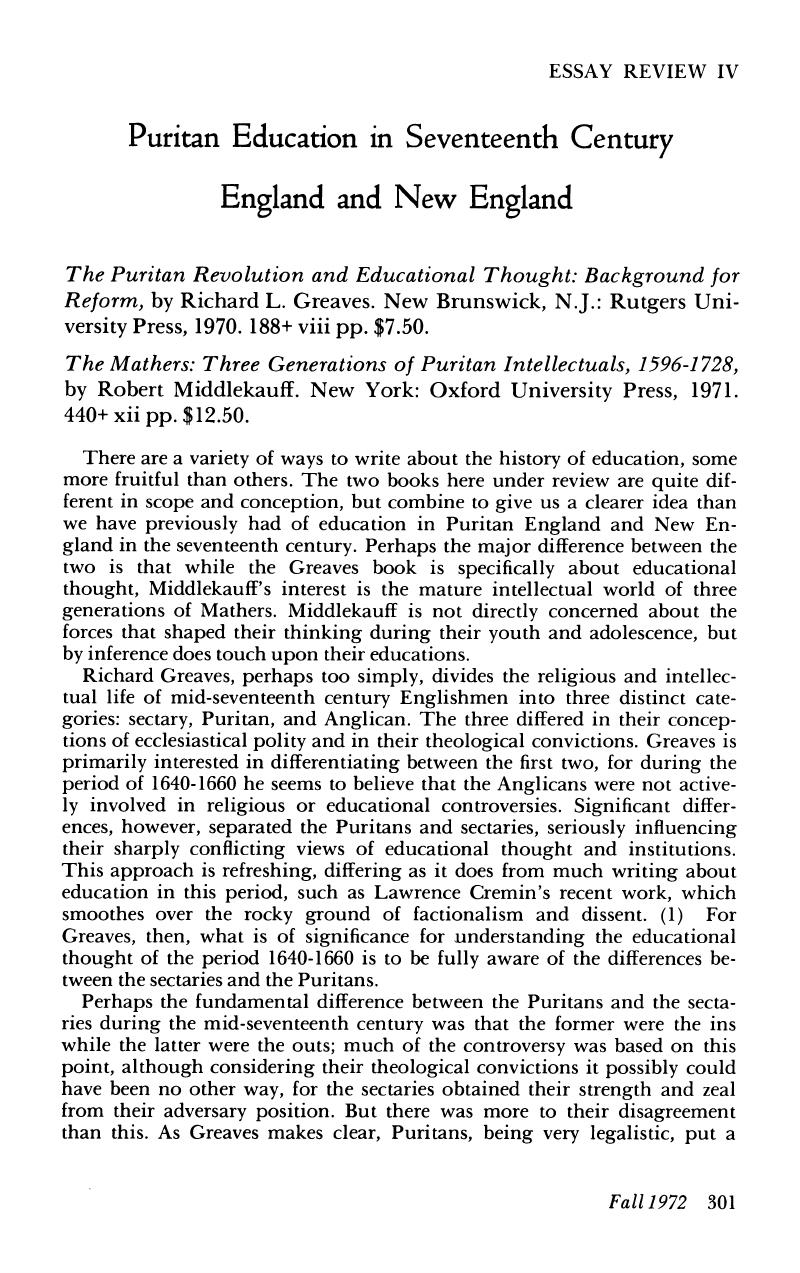Published online by Cambridge University Press: 24 February 2017

1. Cremin, Lawrence, American Education: The Colonial Experience, 1607–1783 (New York, 1970), parts I-II. “The sectaries were predominately separatists in their ecclesiology and were opposed to any form of jure divino ecclesiastical polity…. Puritans preferred the possibility of reforming the existing ecclesiastical establishment to the alternative of separatism…. Epistemologically they differed sharply from the sectaries by retaining rationalism in religion, though that rationalism was subordinated to faith and empiricism. The Puritans were moderately primitivistic in their religious and socioeconomic views, but not nearly so much as the sectaries. Puritans were not antiprofessional, though they were not averse to criticizing the legal class in England.” Greaves, pp. 4–5.Google Scholar
2. Greaves, , pp. 37, 39.Google Scholar
3. Ibid., p. 47.Google Scholar
4. Ibid., p. 48.Google Scholar
5. Ibid., p. 62.Google Scholar
6. Ibid., p. 113.Google Scholar
7. Ibid., p. 136.Google Scholar
8. Ibid., p. 137.Google Scholar
9. See, for example, Billings, Warren M., “The Causes of Bacon's Rebellion: Some Suggestions,” Virginia Magazine of History and Biography 78 (Oct. 1970): 409–435; Morgan, Edmund S., Roger Williams: The Church and the State (New York, 1967).Google Scholar
10. Middlekauff, , p. ix.Google Scholar
11. Ibid., p. 7.Google Scholar
12. Ibid., p. 8.Google Scholar
13. Ibid., p. 81.Google Scholar
14. Ibid., p. 90.Google Scholar
15. Ibid., p. 93.Google Scholar
16. Ibid., p. 201.Google Scholar
17. See Murrin, John M., “Review Essay,” History and Theory, 11 (1972): 236–237.Google Scholar
18. Cremin, , 192.Google Scholar